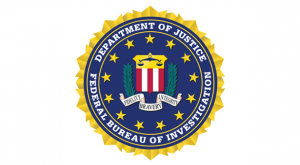Acting State Comptroller Kevin Walsh explains the risks of private, post-academy police training and why it needs to be regulated.
According to the Street Cop Training website: With 70+ courses taught by over 40 experts nationwide, Street Cop Training is the fastest growing law enforcement training company in the country. We are changing the world of law enforcement by properly educating police officers on what they CAN do. Our powerful, career-changing courses help cops catch more criminals, save more lives, have more impact and get home safely.
JUST SAYING
BY RAUL HERNANDEZ
The reason many cop unions in Michigan, New York City, and Milwaukee endorse Trump is that police are being held accountable by Biden’s Department of Justice for abusing, brutalizing, and using lethal force against unarmed people.
Many are winding up in prison with long prison sentences, like the so-called Mississippi “Goon Squad,” a group of racist domestic terrorists with guns and badges.
If Trump is returned to the White House, he will tacitly give the green light for rogue cops throughout the nation to form Goon Squads and police gangs within departments to mete out their brand of justice on the streets.

The FBI, along with the Department of Justice, need to investigate the cops who attended these seminars to find out if any of these police officers were involved in questionable arrests.
 I believe that there are criminal cases that resulted in innocent people who were brutalized, abused, jailed, or sent to prison by cops who attended these Street Cop seminars.
I believe that there are criminal cases that resulted in innocent people who were brutalized, abused, jailed, or sent to prison by cops who attended these Street Cop seminars.
I wrote countless stories about police brutality and fatal shootings throughout my three decades as a newspaper reporter at four newsrooms in two states.
I wrote my first two-part-series on police brutality allegations in El Paso, two months after the infamous Rodney King beating that touched off the L.A. riots
After King was pummeled in March, I proposed to my editors the idea of investigating the El Paso Police Department to see what we would find in the city.
I was lucky to have great El Paso Herald-Post editors who immediately green-lighted it. They also decided it would be a two-part series published on May 11, 1991.
Years later, I went through stacks of police brutality and fatal shooting lawsuits along with other documents, records, police shooting reports, and medical and autopsy records.
I unearthed a trail of broken bones, dead bodies, and severe and permanent bodily injuries caused by those who protect and serve.
Nothing changed.
However, I quickly learned that cops and police unions — who fiercely fought against body cameras — are thin-skinned when it comes to questioning and criticizing the way they do business inside their clubhouse.
Yeah, the one where the taxpayers pay the rent, light bills, salaries, and perks.
During his tenure as Attorney General under then-President Trump, Jeff Sessions decided not to pursue investigations into police departments accused of misconduct.
This move marked a significant policy shift from previous practices, where federal oversight sought to address and reform patterns of abuse and systemic issues within local law enforcement agencies.
Sessions’ stance reflected a broader agenda to roll back federal interventions, prioritizing support for police over the examination of alleged systemic civil rights violations.
This approach sparked debate over the balance between backing law enforcement and protecting the rights and safety of the communities they serve.

